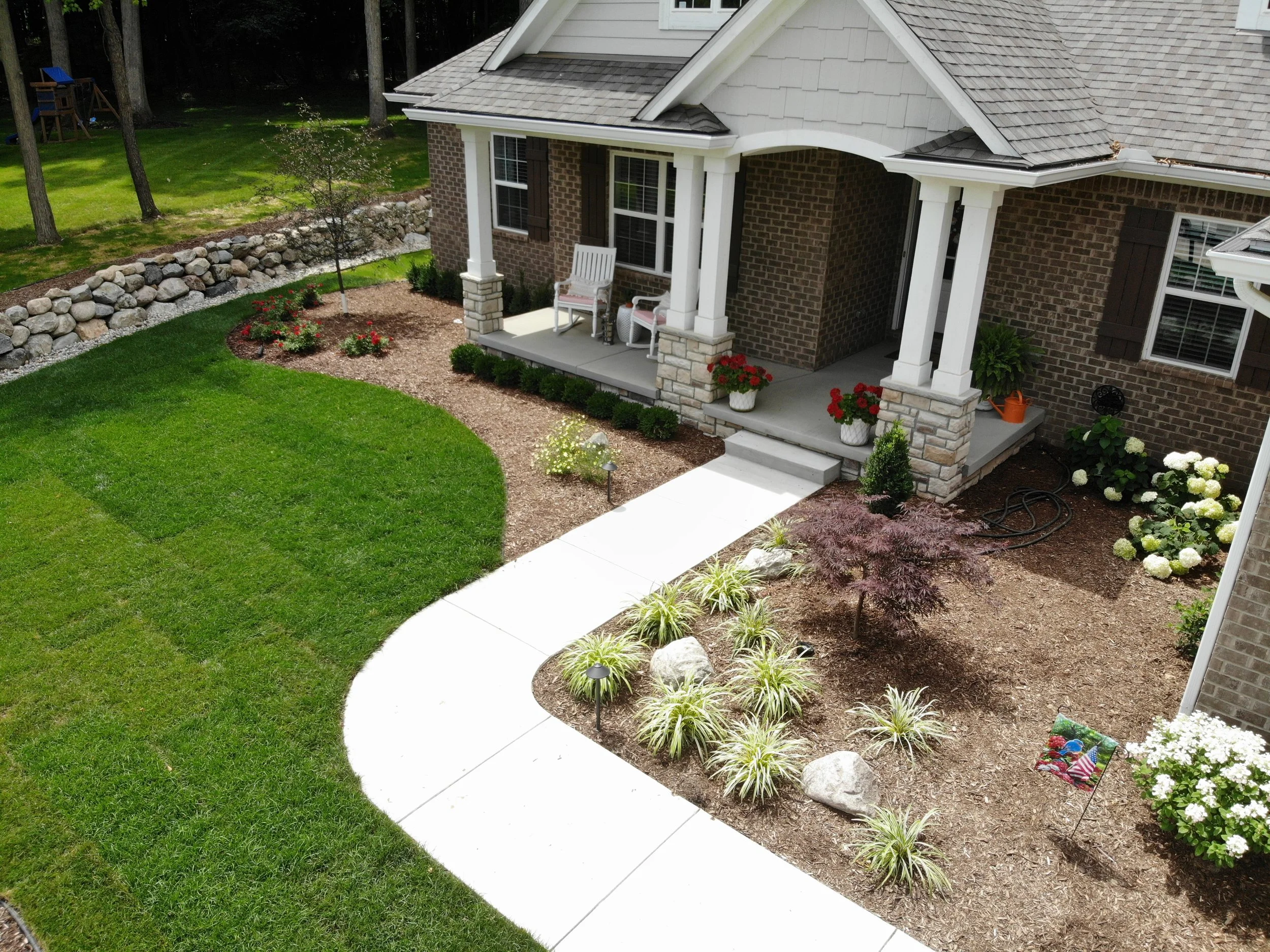Combining Form and Function: Retaining Walls as Part of West Bloomfield Township, MI Landscape Design
In the heart of West Bloomfield Township, MI, the integration of form and function in landscape design transcends mere aesthetics, transforming outdoor spaces into both beautiful and utilitarian havens. Among the myriad elements that contribute to this harmonious blend, retaining walls stand out for their unique ability to offer practical solutions to landscaping challenges while simultaneously enhancing the visual appeal of your property.
Related: West Bloomfield, MI's Guide to Choosing the Perfect Retaining Wall
Understanding the Role of Retaining Walls in Landscape Design
Retaining walls are much more than mere barriers; they are intricately designed structures that serve several critical functions in landscape architecture. Primarily, they are employed to combat soil erosion, an issue that can plague any sloped land. By holding back soil, these walls prevent it from being washed away by rainwater, thus maintaining the integrity of your garden's terrain and the foundation of your home.
In regions like ours, where varying topographies are common, the strategic use of retaining walls can create level areas for planting beds, outdoor living spaces, or even additional parking. This not only maximizes the usable space within your property but also increases its appeal.
The Aesthetic Appeal of Retaining Walls
Beyond their functional benefits, retaining walls offer a wealth of opportunities to elevate the aesthetic dimension of your landscape. With a vast array of materials at your disposal, including natural stone, concrete blocks, and timber, the design possibilities are endless. Each material brings its own unique texture, color, and character to the landscape, allowing for customization that can complement any architectural style or personal preference.
Imagine a serene outdoor sanctuary that blends seamlessly with the natural surroundings of our area. A well-designed retaining wall can serve as a focal point in your landscape, featuring built-in planters for vibrant blooms or succulents, integrating seamlessly with the natural topography of your land.
Incorporating Sustainability into Retaining Walls
Sustainability is a key consideration in modern landscape design, and retaining walls are no exception. Innovative techniques and materials can be utilized to ensure that your retaining wall not only looks good but also contributes positively to the environment. For instance, permeable materials allow water to seep through the wall, reducing runoff and replenishing groundwater.
Enhancing Outdoor Living Spaces with Retaining Walls
Retaining walls play a pivotal role in the creation of functional and inviting outdoor living spaces. By terracing sloped areas, these walls create flat, usable spaces that can be designed for various purposes – from paver patios and outdoor kitchens to fire pits and seating areas. This terracing not only adds visual interest to your landscape but also creates distinct zones for relaxation and entertainment, enhancing your overall outdoor living experience.
The Technical Considerations of Building Retaining Walls
While the aesthetic and functional benefits of retaining walls are clear, their construction is not a task to be taken lightly. Technical considerations such as soil type, drainage, and wall height must be carefully assessed to ensure the stability and longevity of the wall. In areas where weather conditions can vary significantly, it is crucial to design retaining walls that can withstand the elements, including the freeze-thaw cycles common in our winters.
Related: How a Retaining Wall Can Be a Bold Statement in the Novi and Canton, MI Areas
About the Author
It was in the early 1970s that Phil Munro was introduced to the landscape industry. His dad, Don Munro, purchased a dump truck to deliver materials and install small landscape jobs when he had free time after work and on the weekends, and he’d bring Phil along with him. After serving in the U.S. Navy in the 1980s, Phil built on this experience to start Munro Landscaping in 1987. In 1991, he incorporated as Munro’s Landscaping and Lawn Maintenance. Over the years he developed many relationships with suppliers and builders, and the company experienced massive growth: It expanded the lawn division and started a landscape construction division in the ’90s.

